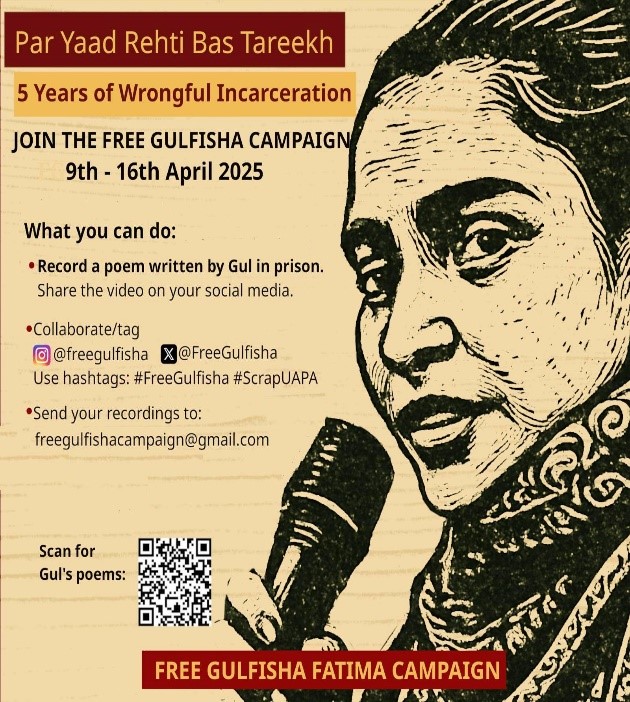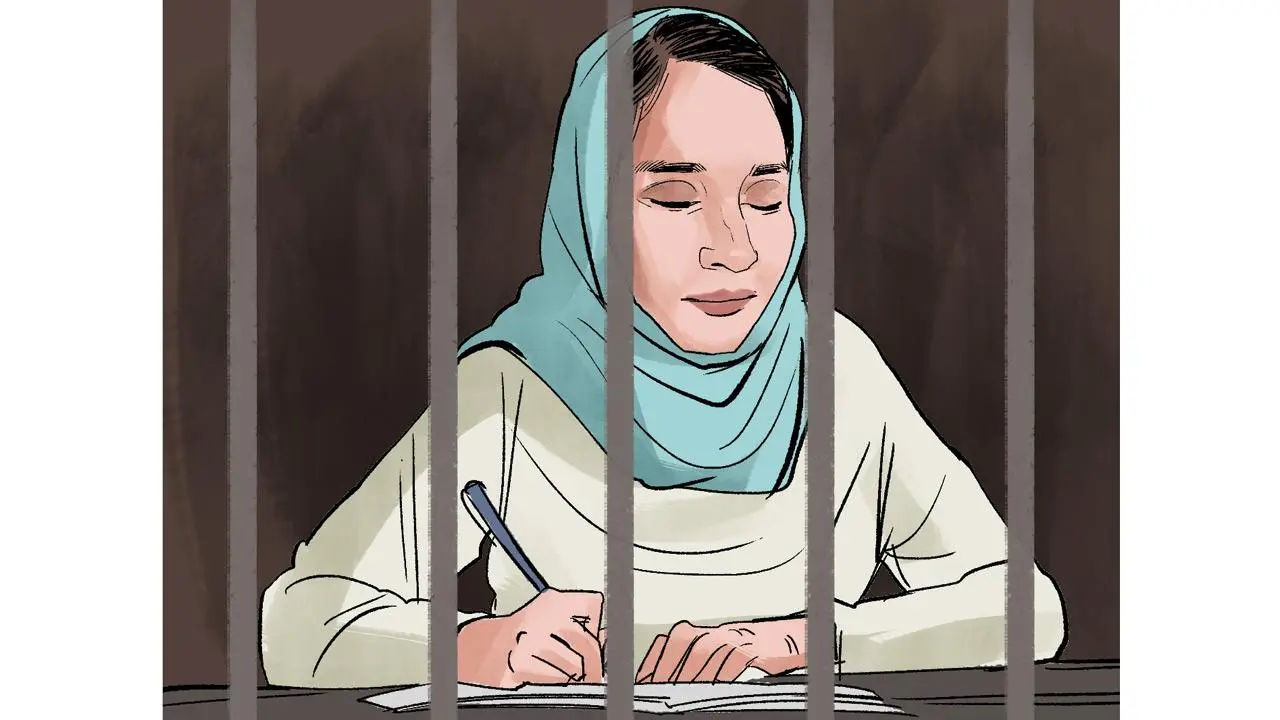Five years ago, a young woman from North-East Delhi was imprisoned—not for a crime, but for her courage. Gulfisha Fatima, or “Gul” as many affectionately call her, was one of the many voices that rose against the discriminatory CAA-NRC-NPR regime. For this, she was booked under the draconian Unlawful Activities (Prevention) Act (UAPA), 1967. On April 9, 2020, she was arrested. Five years have passed since that day, and Gulfisha is still incarcerated, without trial, her bail application left languishing in the Delhi High Court for three years. Her incarceration is not just a legal travesty—it is a deeply human injustice.
Yet within the prison walls, Gul has carved her resistance in verses. Her poetry—tender, defiant, searing—brings to life the emotional toll of incarceration and the enduring strength of a political prisoner. Her words, scribbled in captivity, travel far beyond the bars, echoing through classrooms, protests, and social media feeds, carried by those who refuse to let her be silenced.
The Free Gulfisha Campaign this April 2025 is not merely a show of solidarity—it is a collective cry for justice. From April 9 to April 16, people are being called upon to read her poems aloud, post them on social media, organise readings in homes and classrooms, and remind the world that Gul’s voice cannot be smothered by concrete walls.

In Forgetting, she writes with aching clarity:
“I forget now almost– everything
but remember only the dates”
What she once forgot in history exams—dates—have now become haunting markers of delay, denial, and abandonment. Court dates, bail hearings, the passing of time—each one a reminder of a state that refuses to hear her.
In These walls around me, she personifies her prison cell:
“Finally! one day, these burdened walls collapse
and erected in their place are new silenced walls”
It is a poem of quiet devastation—a recognition of how the system silences resistance, again and again, by replacing the broken with the mute, and the rebellious with the subjugated.
Her poetry is not just about her pain. It is about love, longing, and refusal. In My love, she writes of an internal duality: one heart yearning for closeness, the other forced to reject even the memory of it. In Listen Faiz, she speaks to the legendary poet Faiz Ahmed Faiz, connecting her solitary wait with his own in prison:
“The difference between
Your wait and mine
Is just
The appointed time”
Every line is a thread tying her to the tradition of poets and political prisoners whose words outlive their bars.
Gulfisha’s case is a microcosm of a larger cruelty—the systematic criminalisation of dissent, the silencing of Muslim voices, and the state’s weaponisation of law. She was targeted not just because she protested, but because she was articulate, educated, fearless—a young Muslim woman who would not bow.
As she wrote in In the darkness of last night:
“the tears of fragile rain…
raised an uproar of complaints
…the oppressed remained
in the darkness of last night…”
Because remembering Gul is not just an act of solidarity—it is an act of resistance against a system that feeds on silence.
Related:
MBA graduate and activist, Gulfisha Fatima awaits justice
More than 1100 days in prison: Gulfisha Fatima awaits bail
Delhi Violence: Court dismisses Gulfisha Fatima, Tasleem Ahmed’s bail pleas
Delhi Violence case: Gulfisha Fatima completes 18 months of incarceration
Delhi violence: Jailed activist Gulfisha Fatima accuses Delhi Police of diversionary tactics
Gulfisha Fatima alleges harassment, court asks jail to change staff if needed

